President Recep Tayyip Erdoğan has confined his international diplomatic efforts to phone calls, mostly in recent months, amid intense campaigning for municipal elections. With elections concluded on March 31, the Turkish leader is scheduled to resume trips abroad and host counterparts from across the world.
Erdoğan will travel to Iraq on April 22 and is set to visit the United States on May 9. In Iraq, he will discuss steps for counterterrorism and the Development Road project. In his talks with U.S. President Joe Biden, topics discussed will include the acquisition of F-16 fighter jets by Türkiye, counterterrorism and efforts to stop Israeli attacks in Gaza and a two-state solution to the Palestine-Israel conflict.
At home, Erdoğan will likely welcome Egyptian President Abdel-Fattah el-Sissi, who this week started his third term as president, shortly after a landmark visit by Erdoğan to Egypt in the latest step in normalizing relations. Another guest of Erdoğan in May amid Türkiye’s bid to normalize ties will be Greek Prime Minister Kyriakos Mitsotakis. Russian President Vladimir Putin is also expected to make his long-delayed visit to Türkiye in the coming months.
Türkiye and the U.S. are two historic allies, though their ties deteriorated due to disagreements over several issues. Diplomatic ties remain robust, and the two leaders occasionally talk to each other over the phone, but their last in-person meeting was in July during a NATO summit. The same event focused on Sweden’s NATO membership, something Türkiye initially opposed. After Türkiye approved of the accession, ties regained momentum. Most recently, Foreign Minister Hakan Fidan and National Intelligence Organization (MIT) Director Ibrahim Kalın held talks in the U.S. Their visit is considered a preparatory meeting for Biden-Erdoğan talks.
Erdoğan and Biden will have a lot to discuss, but the situation in Gaza and defense cooperation, as well as the fight against terrorism, are all expected to be hot topics, Turkish media reported. Erdoğan will reiterate Türkiye’s call for an end to Israel’s attacks in Gaza and find a solution to the Palestinian-Israeli conflict solely based on a two-state solution.
The Turkish president has long been critical of the U.S. stance on the Palestinian-Israeli conflict, particularly Washington’s unconditional support of the Netanyahu administration, which he accused of committing crimes against innocent Palestinians. In February, Erdoğan told journalists that the peace process in the conflict failed to bear fruit due to the negative approach of the U.S.
Erdoğan’s talks will also concentrate on Türkiye’s disappointment in U.S. support for the YPG, the Syrian branch of the PKK terrorist group, which has killed thousands in Türkiye over the past four decades.
Last month, Turkish officials reiterated a call to the U.S. to end its support for the YPG after a high-level U.S. visit to the terrorist group.
“The U.S. continues to support the PKK/YPG/SDF terrorist organization under the pretext of fighting against Daesh. It is not possible to fight a terrorist organization using another terrorist organization. So the fight against terrorism cannot be done with terrorists,” a Defense Ministry source told reporters.
Counterterrorism efforts will also be on the table in Erdoğan’s visit to Iraq. This is his first visit to Türkiye’s southern neighbor in a long time. Erdoğan was prime minister when he last traveled to Baghdad in 2012. Türkiye’s defense minister, foreign minister and intelligence chief recently visited Iraq for a preparatory meeting ahead of Erdoğan’s visit. The PKK’s leadership hid out in Iraq’s north, and Ankara was disappointed over the lack of cooperation from Baghdad in the fight against the PKK in the past. Yet, the visit of ministers amid an atmosphere of improved cooperation is viewed as a sharp turn in Iraq’s policy toward the PKK. Erdoğan recently signaled a cross-border military offensive in Iraq this summer to wipe out the terrorists.
Another topic in Erdoğan’s Iraq visit will be the Development Road, a $17 billion (TL 548 billion) project pitched as a link between Asia and Europe. It aims to tie a major commodities port in Iraq’s oil-rich south to the border with Türkiye and, from there, to Europe through a network of railways and highways. Türkiye already had a major share in construction and development projects in its southern neighbor in the post-war period.
The Development Road, unveiled in May, will facilitate the movement of energy resources, goods and passengers from the Gulf to Europe through the port in Iraq’s Basra.
President’s guests
In May, Erdoğan will host el-Sissi for his first visit to Türkiye. Diplomatic relations between Türkiye and Egypt have been maintained at the level of charge d’affaires on both sides since Egypt’s 2013 military coup, which overthrew the late President Mohammed Morsi. Relations have mainly been stable except for short periods of suspension in the 1960s, but they reached new heights when Morsi was elected president in 2012. After Morsi was toppled, Türkiye maintained contact with Cairo before downgrading diplomatic relations in 2013, while economic ties remained largely unharmed.
In the first visit by a sitting Turkish leader in 12 years, Erdoğan traveled to Egypt in February and received an unusually warm welcome from el-Sissi, who welcomed him at the airport.
The visit capped diplomatic efforts in recent years to thaw the nations’ frosty relations. They mutually appointed ambassadors last year, and in February, Türkiye announced that it would provide Egypt with armed drones. Normalization accelerated after Erdoğan and el-Sissi shook hands in Doha at the World Cup in 2022 and gained further pace following the deadly February 2023 earthquakes in Türkiye, Erdoğan’s reelection in May and the appointment of ambassadors to each other’s capitals in July. Since then, the two leaders met on the sidelines of the G-20 leaders summit in September and spoke over the phone, particularly on the latest round of the Palestine-Israel conflict that broke out on Oct. 7. Cairo and Ankara have backed opposing factions in Libya’s yet unresolved conflict and also over maritime borders in the gas-rich Eastern Mediterranean. However, Türkiye has dismissed claims of a rivalry with Egypt in the region and reiterated willingness for more cooperation.
Another visit will be borne out of normalization efforts by Greek Prime Minister Kyriakos Mitsotakis, who hosted Erdoğan in December. Mitsotakis is expected to be in Türkiye in May. The two leaders are expected to discuss the pace of normalization in their relations, as well as regional issues, confidence-building measures, ties with the European Union, and visa exemption for Turkish citizens visiting the Greek islands in the Aegean Sea.
Greece and Türkiye, both NATO members, have long been at odds over issues, including where their continental shelves start and end, energy resources, flights over the Aegean Sea and policy toward the ethnically divided island of Cyprus. They have taken high-profile steps to improve their ties in recent years, notably since Russia invaded Ukraine in 2022.
During Erdoğan’s visit to Greece, they agreed to boost trade, keep communication channels open, seek military confidence-building measures to reduce tension and work on issues that have kept them apart, notably in the Aegean Sea.
While official statements have been positive, the issues are longstanding and deep-rooted. Neither side expects the process to be without turbulence, particularly in the Aegean, where Turkish and Greek jets often scuffled until recently.
Earlier in January, Ankara and Athens reached respective deals with Washington for fighter jets, raising concerns about fresh skirmishes in the region.
Ankara has repeatedly warned its neighbor against entering an arms race with Türkiye, particularly on building a military presence on the disputed Aegean islands since the 1960s, in violation of postwar treaties. Greece’s purchase of F-35 fighter jets from the U.S. and the upping of defense budgets are meant to counter the protection of Turkish interests in the Eastern Mediterranean. Greece says it needs to defend the islands against a potential attack from Türkiye, but Turkish officials said continued militarization of the islands could lead to Ankara questioning their ownership.
For Mitsotakis, the demarcation of the continental shelf and economic exclusive zone is the only “difference” between the countries, but even if the issue isn’t resolved, Türkiye and Greece “should be able to coexist and focus on a positive agenda.”
Any normalization of relations would ease tensions in the Eastern Mediterranean and contribute to regional stability. Southern Mediterranean nations Libya and Egypt are also parties to the issue of continental shelves. In 2020, Greece and Egypt unilaterally inked a maritime deal for an exclusive economic zone (EEZ) in the region, angering Libya and Türkiye as Ankara lambasted the move as a violation of Türkiye’s rights in the Eastern Mediterranean and declared as “null and void.” Since 2022, Ankara and Libya’s Tripoli government have been negotiating a deal on energy exploration in an exclusive economic zone, which Türkiye and a previous Tripoli government agreed on in 2019.

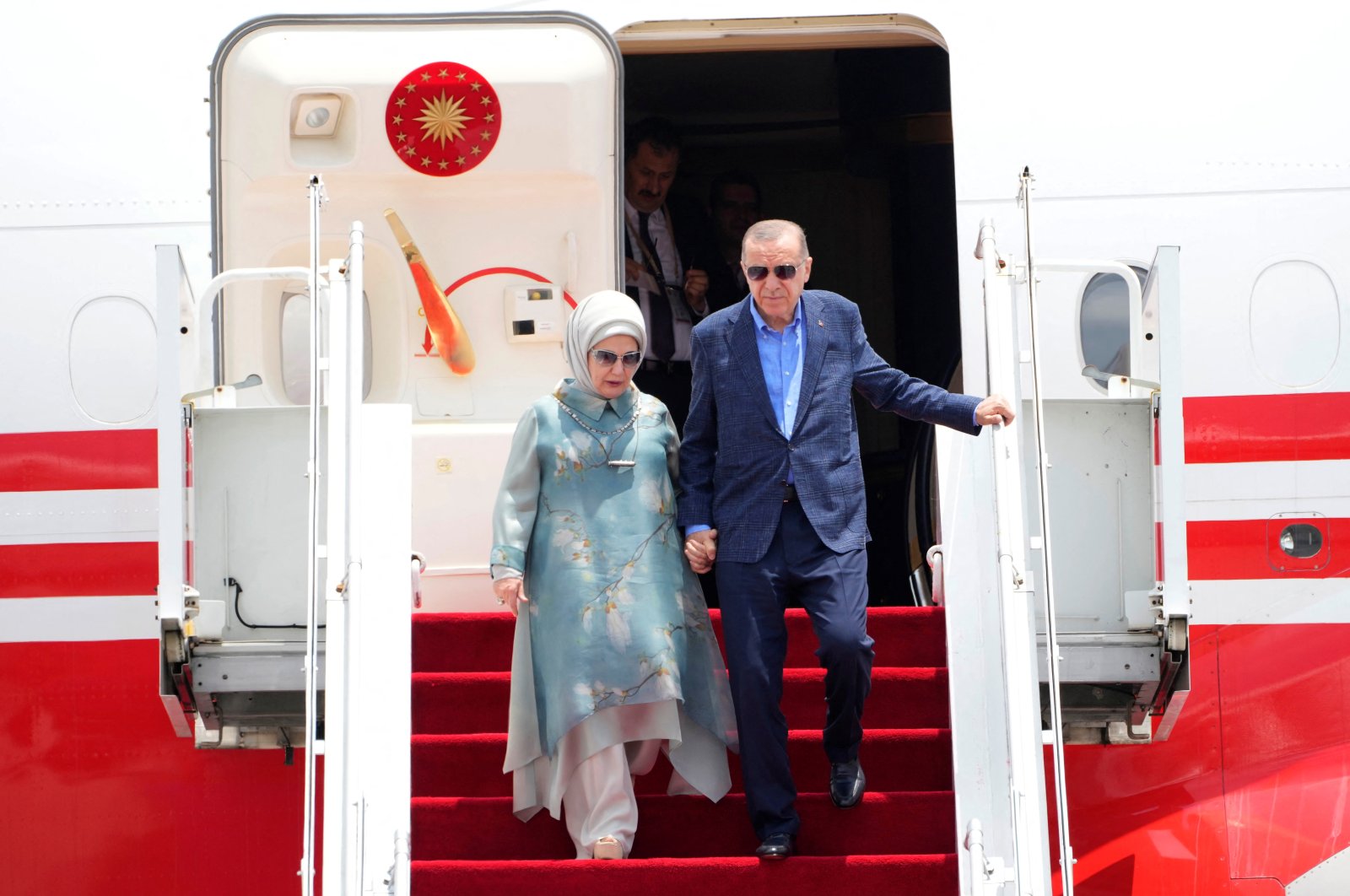
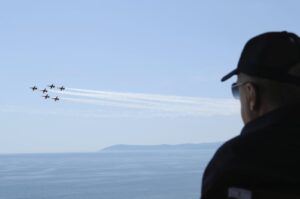

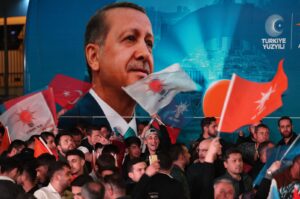

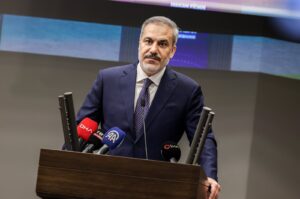

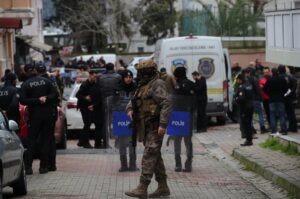
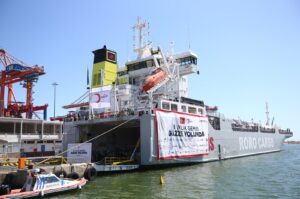

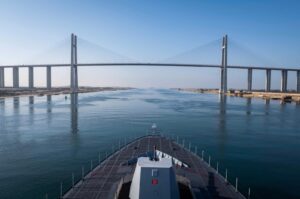
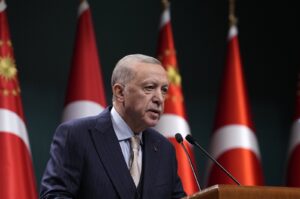
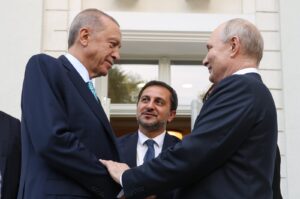
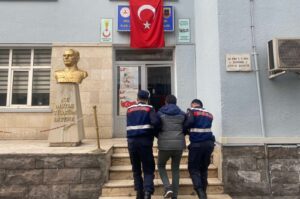
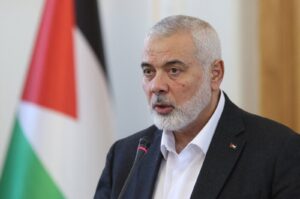
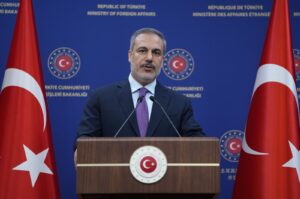

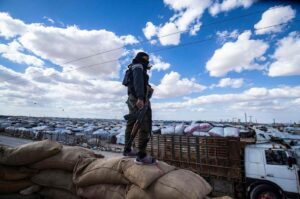
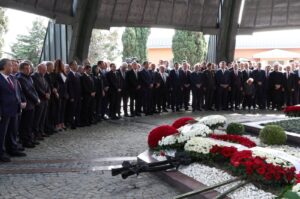
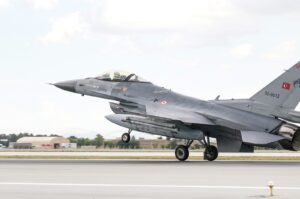
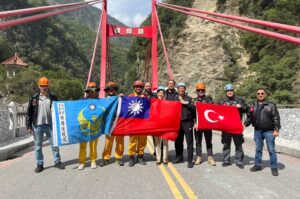
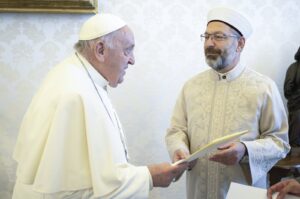
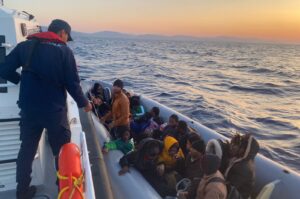

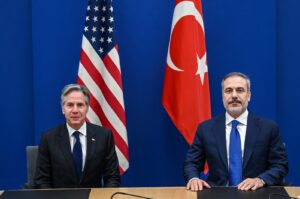

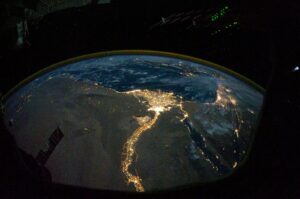
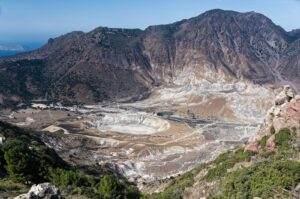

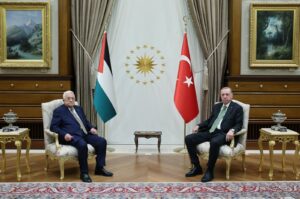

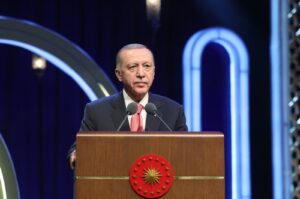


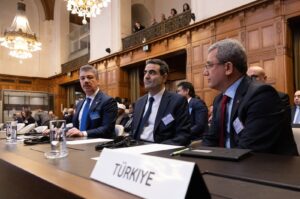
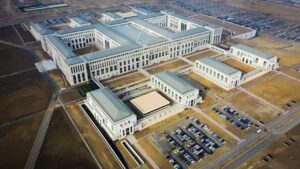
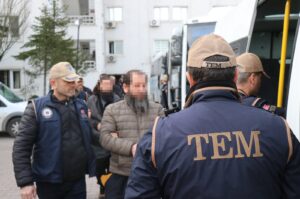
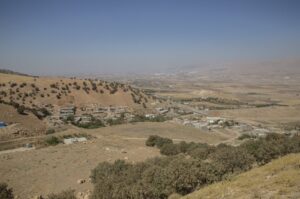
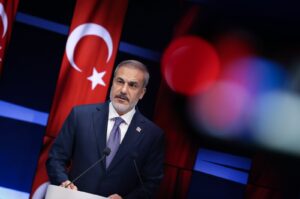
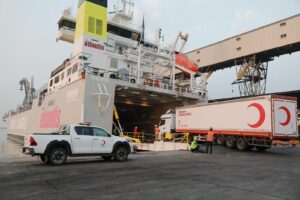
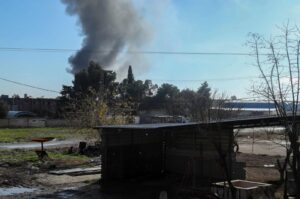
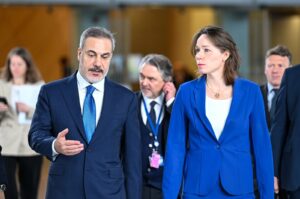
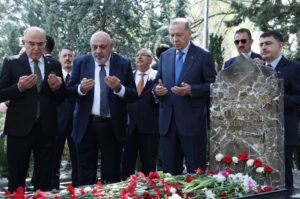
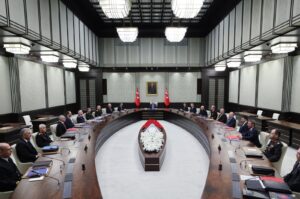
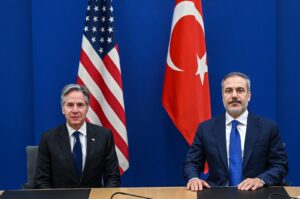
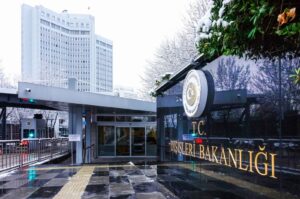
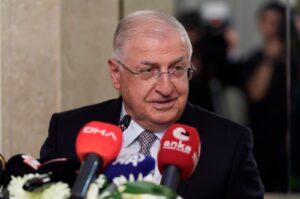

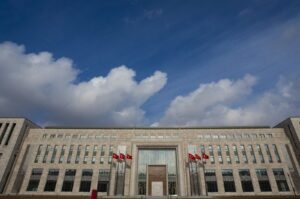
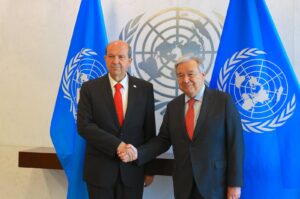
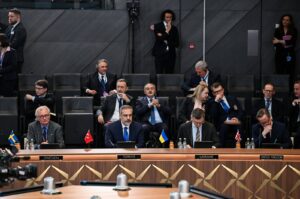
Be First to Comment